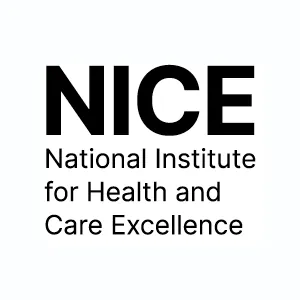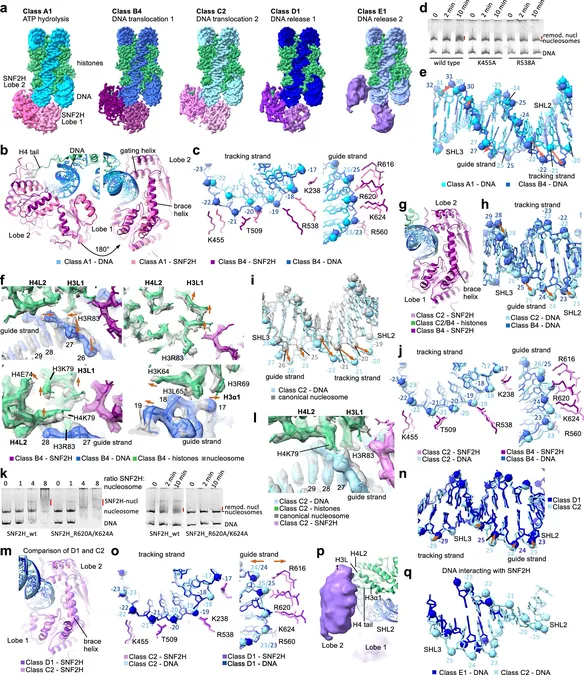
Revolutionary Advancements in Blood Cancer Treatments: Record Recommendations Signal Hope for Thousands
2025-04-02
Author: Yu
Revolutionary Advancements in Blood Cancer Treatments: Record Recommendations Signal Hope for Thousands
In a groundbreaking update from the National Institute for Health and Care Excellence (NICE), it’s been revealed that approximately 5,000 blood cancer patients in the UK stand to gain from 13 new treatments recommended for use in 2024. This unprecedented number marks the highest tally of positive treatment recommendations for blood cancer in a single year, and it showcases the rapid advancement in medical science over the last decade.
Blood cancer accounts for a significant 10% of all cancer cases in the UK and is the third-largest cause of cancer-related deaths, trailing only lung and bowel cancers. This category includes various forms of cancer, such as lymphoma, leukemia, and myeloma, each with its unique subtypes and treatment challenges. For instance, lymphoma can be categorized into Hodgkin and non-Hodgkin lymphoma, while multiple myeloma significantly affects plasma cells.
Personal Stories of Survival: A Beacon of Hope
One poignant story is that of Rosie Dill, who encountered a life-altering diagnosis of plasmacytoma at the age of 45 in 2012, a condition that later progressed to myeloma. Ms. Dill's journey serves as a powerful illustration of the evolution in treatment options available to patients today. "Thirteen years ago, I woke up with double vision," she recalled. "My life was turned upside down by the diagnosis, especially with two young children at home."
Since then, Ms. Dill has undergone two stem cell transplants and has benefitted from innovative treatments approved by NICE after her previous relapses. Reflecting on her progress, she remarked, "When I was initially treated, I had just a single medicine available to me. Fast forward to today, and there is an entire arsenal of new treatments that have extended my life significantly." Indeed, she attributes her continued survival to these advancements, explaining, "These treatments have given me an additional five years with my family, marking my longest remission yet."
The Surge in Treatment Options and Survival Rates
NICE has recorded a staggering 97 positive recommendations for blood cancer treatments over the past decade—five times more than the preceding ten years—and 92% of the total blood cancer treatment recommendations since 2015 have been favorable. This surge is evidence of bolstered research and clinical trials that are validating the effectiveness of novel treatments.
Additionally, improvements in the Cancer Drugs Fund since its revamp in 2016 have facilitated quicker access to innovative treatments. Dr. Deepak Mannari, a consultant haematologist, expressed enthusiasm over these developments, stating, "The advent of new therapies has transformed our approach to treatment, allowing us to specialize in specific diseases. It’s a remarkable evolution in care."
Remarkably, a record-breaking 21,700 patients in England started NICE-approved blood cancer treatments during 2024—an impressive 13-fold increase since 2016. These contemporary therapies are often less toxic than traditional options, which has led to better patient management and less strain on NHS resources.
Survival Rates on the Rise
There is significant tangible progress in survival rates as well. For instance, the five-year survival rate for myeloma patients has climbed from 40% for those diagnosed between 2006 and 2010 to 52% for those diagnosed from 2016 to 2020. Similarly, advancements for leukemias have spurred comparable increases, demonstrating that new treatments are effectively improving outcomes.
Research conducted by Blood Cancer UK indicates that the velocity of survival improvements for blood cancer outpaces that of other cancer types, attributing these gains primarily to the introduction of innovative anti-cancer therapies. Notably, CAR-T therapy—a revolutionary and individualized treatment—has shown remarkable promise, particularly for patients with advanced cancers, offering hope where other treatments have failed.
A Future Filled with Promise
Rosie Dill's story underscores the continued fight against myeloma, emphasizing the importance of access to diverse treatment strategies tailored to individual needs. "While myeloma continues to adapt and challenge us," Dill stated, "the key is having as many treatment options available as possible, since everyone's response to treatments varies."
As new therapies continue to emerge, the future looks increasingly brighter for blood cancer patients, with connections between advancements in treatment research and improving survival rates evident to all involved. The optimism shared by experts and patients alike paints a hopeful picture for those affected by blood cancers, as medical innovations pave the way for more effective, personalized, and accessible cancer care.




 Brasil (PT)
Brasil (PT)
 Canada (EN)
Canada (EN)
 Chile (ES)
Chile (ES)
 Česko (CS)
Česko (CS)
 대한민국 (KO)
대한민국 (KO)
 España (ES)
España (ES)
 France (FR)
France (FR)
 Hong Kong (EN)
Hong Kong (EN)
 Italia (IT)
Italia (IT)
 日本 (JA)
日本 (JA)
 Magyarország (HU)
Magyarország (HU)
 Norge (NO)
Norge (NO)
 Polska (PL)
Polska (PL)
 Schweiz (DE)
Schweiz (DE)
 Singapore (EN)
Singapore (EN)
 Sverige (SV)
Sverige (SV)
 Suomi (FI)
Suomi (FI)
 Türkiye (TR)
Türkiye (TR)
 الإمارات العربية المتحدة (AR)
الإمارات العربية المتحدة (AR)